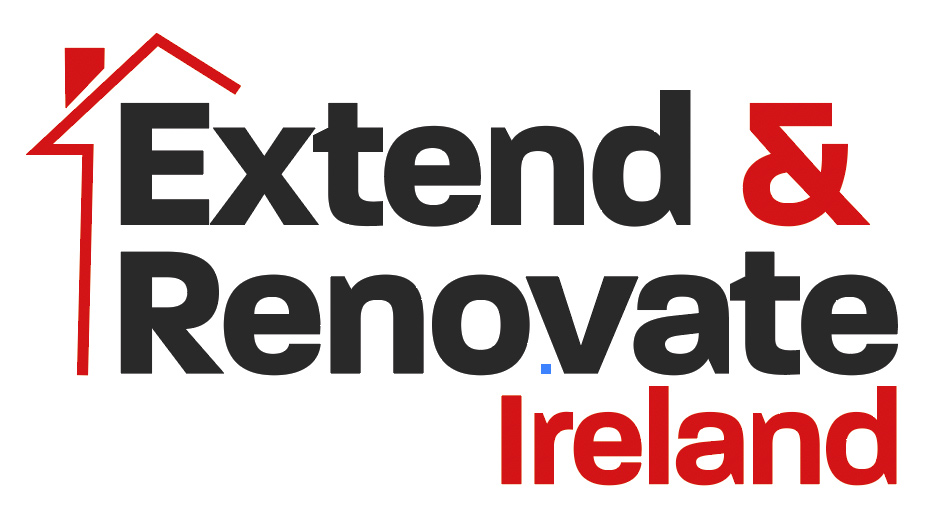When planning an extension, understanding the costs associated with roofing is crucial. In this article, we’ll break down the key factors and differences in roofing costs, making it easy for you to grasp the essentials. Whether you’re considering a flat or pitched roof, a bungalow or a two-storey house, we’ve got you covered.
Overview of Roofing Costs
Before delving into specifics, let’s get an overview of how roofs are constructed and how these construction methods impact the overall costs. Four key factors influence the choice of roof structure for any project: building size and shape, ridge height, aesthetics, and installation and maintenance requirements. All of these factors play a role in determining the final cost.
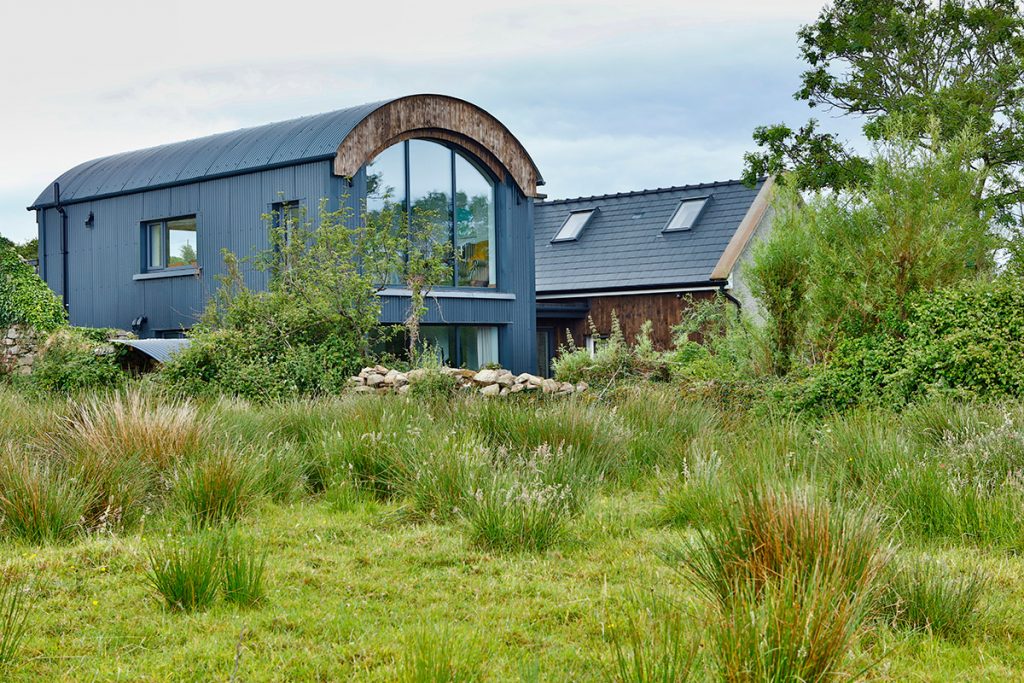
Flat vs. Pitched Roofs for a Bungalow
One significant decision you’ll face when planning your extension is choosing between a flat or pitched roof. Pitched roofs have a slope greater than 10 degrees, typically not less than 15 degrees. They can vary in complexity, with modern houses often utilising prefabricated trussed rafters. The design and specifications of these rafters, including size, bracing, spacing, and fixings, can influence the overall cost.
On the other hand, flat roofs are characterised by slopes less than 10 degrees. They’ve become more popular thanks to advancements in flat roof finishing products. Flat roofs are usually constructed with timber joists and plywood or, in some cases, concrete. There are three types of flat roof construction: cold roof deck, warm roof deck, and inverted warm roof deck. In Ireland, warm roof decks are the most common due to their ability to control the dew point.
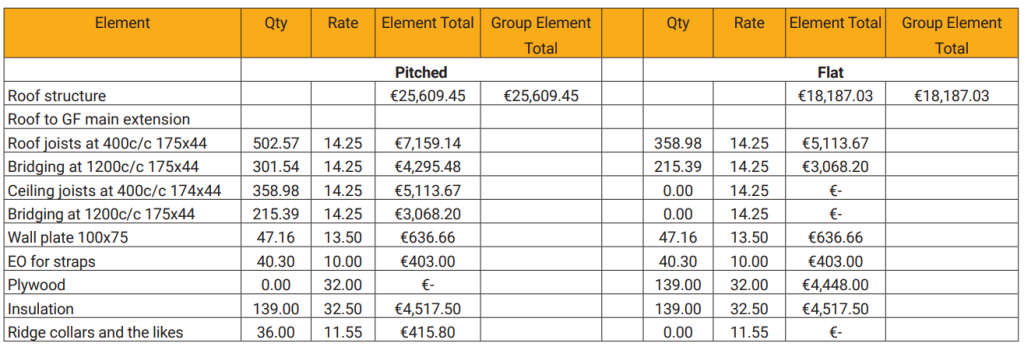
Bungalow vs. Two-Storey House
The choice between a bungalow and a two-storey house also impacts roofing costs. The cost difference between pitched roofs is minimal, but the speed of installation using prefabricated trusses makes them more popular. Flat roofs, especially for larger roof areas or complex shapes, tend to be more economical.
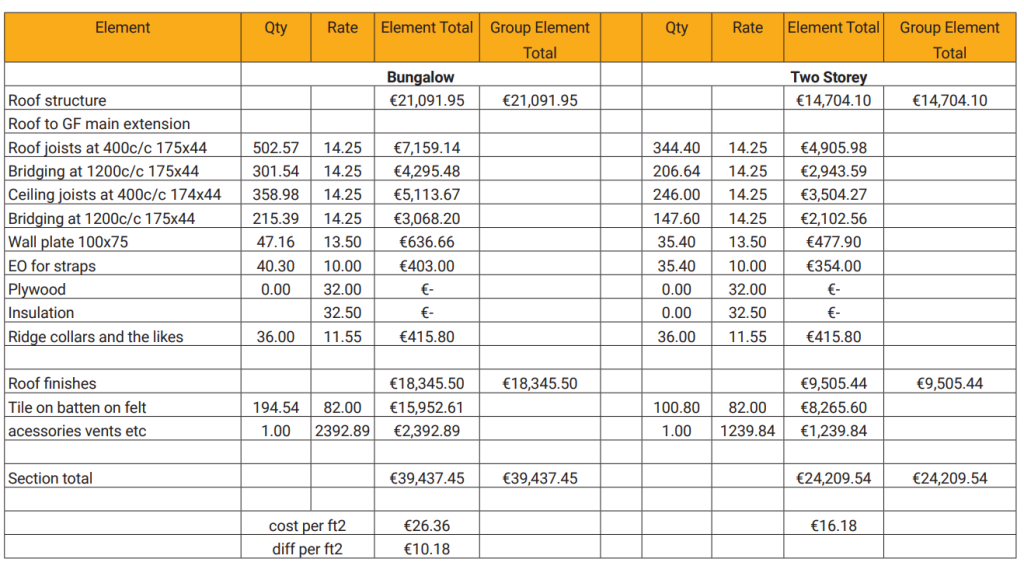
Cost Component Details
Understanding the detailed breakdown of roofing costs is essential. Most roof finishes require additional layers, including plywood, vapor barriers or breather membranes, battens, ventilation, and more. The final cost of your roofing system will depend on the specific design and materials chosen.
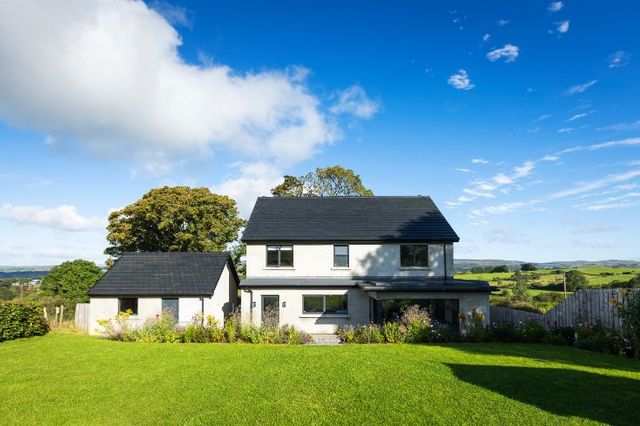
Detailed Costs of Roof Finishes
Different roof finishes come with varying price tags. Here’s a breakdown of some common options:
Mastic Asphalt: Traditionally used but prone to leaking, now mainly found on sheds, costing up to €30 to €40 per sqm.
uPVC or Bitumen-Based Systems: More common for flat roofs, these systems include plywood, vapor barriers, insulation, and waterproofing layers. Prices typically range from €100 to €150 per sqm.
Fibreglass: A popular and cost-effective choice, with prices ranging from €70 to €85 per sqm for the all-in system.
Natural Slate: Quality varies, and prices can range from over €190 per sqm for premium options to around €30 to €40 per sqm for common Spanish slates.
Fibre Cement Slates: These man-made slates are uniform in shape and cost less, usually below €2 per slate (€24 per sqm on average).
Concrete Tiles: Available in various colours and designs, man-made concrete tiles are generally priced below €2 per tile.
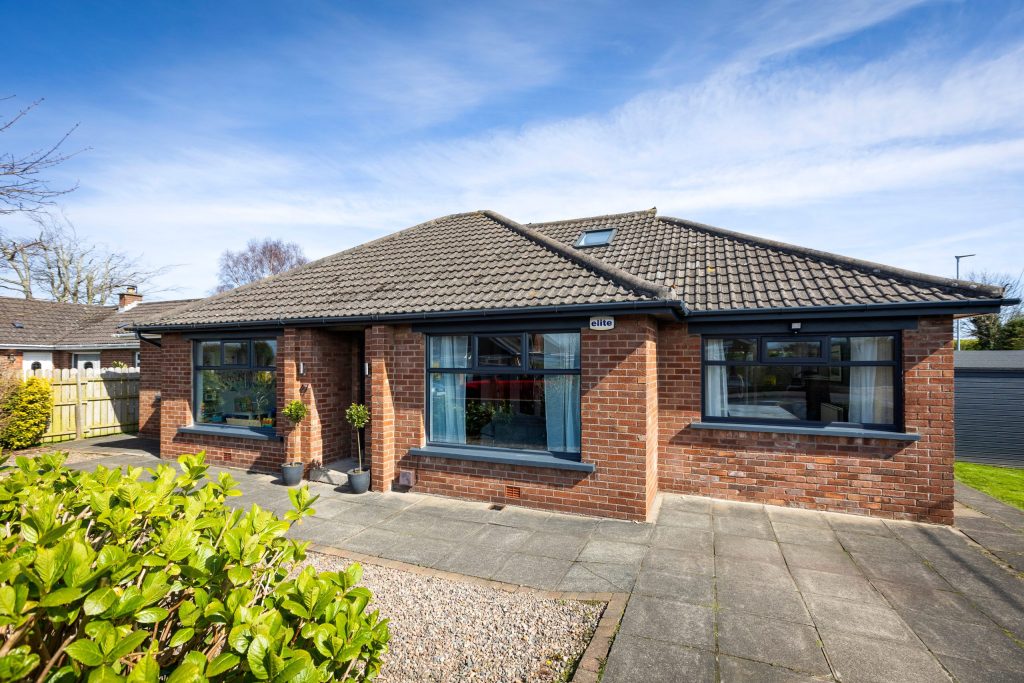
Cost of Cold vs. Warm Roofs
The choice between cold and warm roofs impacts insulation and temperature control. A cold roof deck places insulation in the ceiling, keeping the roof deck and covering at a lower temperature. In contrast, a warm roof deck system installs insulation immediately below the waterproof covering and on top of the decking and vapor barrier, maintaining a warmer deck temperature.
Final Considerations
It’s important to note that flat roofs may be considered a higher insurance risk compared to pitched roofs. Be sure to discuss this with your current or future insurers to understand the long-term cost implications of your roofing choice.
Keep in mind that roofing costs have seen a 20 to 30 percent increase in recent years, so budget accordingly.
When planning your extension, carefully consider your roofing options and their associated costs. Each decision you make, from roof type to finish, will impact your overall budget. Understanding these factors will help you make an informed choice that meets your needs and budget requirements.
